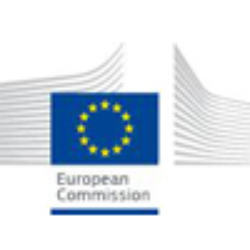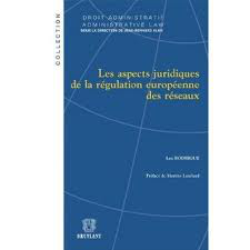Updated: June 11, 2012 (Initial publication: May 23, 2012)
Thesaurus : Doctrine

Dec. 20, 2011
Thesaurus : 06. European Commission

Commission decision of 20.12.2011 on the application of Article 106(2) of the Treaty on the Functioning of the European Union to State aid in the form of public service compensation granted to certain undertaking entrusted with the operation of services of general economic interest
Updated: May 22, 2012 (Initial publication: May 28, 2012)
Breaking news

May 15, 2012
Thesaurus : 03. French Council of State
Complete reference: CE, May 15, 2012, Association Vent de colère! Fédération nationale et autres, n°324852
Updated: May 9, 2012 (Initial publication: April 11, 2012)
Breaking news

Updated: May 9, 2012 (Initial publication: April 18, 2012)
Breaking news

Updated: May 9, 2012 (Initial publication: April 25, 2012)
Breaking news

Updated: April 3, 2012 (Initial publication: March 12, 2012)
Contributions

Updated: March 23, 2012 (Initial publication: Jan. 9, 2012)
Releases : I. Isolated Articles

Translated Summaries
In The Journal of Regulation the summaries’ translation are done by the Editors and not by the authors
ENGLISH
Interchange fees set by the main credit/debit card associations play an important role in the retail banking sector, however they remain largely invisible to consumers.
FRENCH
Les frais d’interchange fixés par les principales associations de cartes de crédit jouent un rôle important dans le secteur des services bancaires de détail, mais ils restent largement invisibles pour les consommateurs.
SPANISH
Tasas de intercambio establecidas por las asociaciones principales de tarjetas de crédito/débito juegan un rol importante en el sector de negocio de bancario minorista. No obstante, permanecen por la mayor parte invisibles a los consumidores.
ITALIAN
Le commissioni interscambio su carte di credito/debito fissate dalle principali associazioni giocano un ruolo importante nel settore dell’attività bancaria al dettaglio, tuttavia sono ancora poco visibili ai consumatori.
ARABIC
رُسوم التبادُل التي وُضِعت مِن طرفِ جمعيات بطاقة الائتمان لها دورُ أساسي في مَجال المصرفية للخدمات الافرادية, لكِنَّ بقِيت هذِهِ الرُّسُوم غيرُ ظاهِرة لِكثِير المُستهلِكين.
..................
Other translations forthcoming.
Updated: March 5, 2012 (Initial publication: Feb. 23, 2012)
Contributions

Updated: Jan. 13, 2012 (Initial publication: Jan. 11, 2012)
Contributions

Updated: Jan. 9, 2012 (Initial publication: Jan. 9, 2012)
Contributions

Updated: Jan. 3, 2012 (Initial publication: Jan. 2, 2012)
Contributions

Updated: Jan. 2, 2012 (Initial publication: Jan. 2, 2012)
Releases : Neutrality in Systems of Economic Regulation

Translated Summaries
In The Journal of Regulation the summaries’ translation are done by the Editors and not by the authors
ENGLISH
The debate on Net Neutrality faces a major difficulty, namely that of its legal status: does there exist a “legal principle”—meaning a rule somewhere within the entire body of law—with mandatory force that could be used to counter infrastructure operators’ discriminatory practices?
FRENCH
Le débat sur la neutralité du Net fait face à une difficulté majeure, à savoir son statut juridique: existe-t-il un «principe juridique», qui exprime une règle dans l’ensemble du système juridique - avec une force obligatoire qui pourrait être utilisée pour contrer les pratiques discriminatoires des opérateurs d’ infrastructure ?
SPANISH
El debate sobre la Neutralidad de la Red se enfrenta a una gran dificultad, primordialmente en cuanto a su estatus legal: ¿realmente existe un “principio legal” – es decir, una regla que se encuentra dentro de la disciplina del derecho – con fuerza mandataria que podría ser usado para enfrentar a las prácticas discriminatorios que practican los operadores de infraestructura?
ITALIAN
Il dibattito sulla neutralità della rete si trova di fronte ad una difficoltà rilevante dal punto di vista del suo fondamento giuridico: esiste una norma giuridica obbligatoria – intesa come una norma legale – che possa essere utilizzata contro le pratiche discriminatorie degli operatori?
....................
Other translations forthcoming.
Updated: Dec. 21, 2011 (Initial publication: Dec. 13, 2011)
Contributions

Updated: Dec. 21, 2011 (Initial publication: Dec. 12, 2011)
Contributions

Updated: Dec. 21, 2011 (Initial publication: Nov. 30, 2011)
Contributions

Updated: Dec. 20, 2011 (Initial publication: Dec. 20, 2011)
Thesaurus : Doctrine
Updated: Sept. 26, 2011 (Initial publication: June 7, 2011)
Releases : I. Isolated Articles

Translated Summaries
ENGLISH :
This article provides an economic perspective on the role played by
competition policy in the development of competition in various
transport sectors. After a brief reminder of some economic features that
are shared by different transport modes, it mainly examines the
principles and practical underpinnings of merger control as it is
implemented in the present context of rapid consolidation in some
transport sectors. Thereby, it stresses some potential shortcomings of
the traditional merger regula tion approach in the particular context of
transportation services, pointing to an excessive attention paid to
potential competition issues on overly narrow relevant markets while
largely ignoring global efficiency-enhancing effects of mergers and
alliances.
ITALIAN
Articolo: Trasporti, concorrenza e politica in material di concorrenza.
Questo articolo delinea una prospettiva economica del ruolo della politica in materia di concorrenza nello sviluppo della libera concorrenza in vari settori dei trasporti. Dopo un breve richiamo ad alcuni aspetti economici, comuni a diversi tipi di trasporto, l’articolo passa in esame i principi e le pratiche fondamentali del controllo delle concentrazione cosi come applicato nell’attuale contesto di consolidamento di alcuni settori dell’industria dei trasporti. Tuttavia, l’articolo mette in rilievo ugualmente alcune carenze potenziali di un approccio classico della regolazione delle concentrazioni nello specifico settore dei trasporti, tra cui l’eccessiva attenzione data alle questioni di concorrenza potenziale su mercati di dimensioni ridotte e la noncuranza generalizzata degli effetti di alleanze e fusioni in materia di efficacia e di progresso.
SPANISH
Artículo: Transporte, competencia y política competitiva
Este artículo da una perspectiva económica sobre el rol jugador por la política de la competencia y el desarrollo de la competencia en varios sectores de transporte. Después de un breve recordatorio sobre las características económicas compartidas por diferentes modales de transporte, examina principalmente los principios y detalles prácticos de la implementación de control de uniones en el contexto presente de consolidación rápida en algunos sectores de transporte. El artículo pone énfasis algunos de los defectos potenciales del la regulación tradicional de uniones, particularmente en el contexto de los servicios de transporte, indicando un enfoque excesivo a cuestiones de competencia potencial en mercados demasiado estrechos y a la vez ignorando los efectos del mejoramiento de eficacia global de las uniones y las alianzas.
PORTUGUESE
Artigo: Transporte, concorrência e política concorrencial
Este artigo fornece uma perspectiva econômica sobre o papel exercido pela política concorrencial no desenvolvimento da concorrência em diversos setores de transporte. Após uma breve retomada de conceitos econômicos compartilhados por modos de transporte diferentes, ele examina principalmente os princípios e os problemas práticos do controle como implementado no contexto presente de rápida consolidação em alguns setores de transporte. Assim, ele sublinha alguns potenciais conflitos no enfoque da regulação tradicional no contexto particular de serviços de transporte, apontando para uma atenção excessiva concedida para problemas de concorrência potencial em muito relevantes mercados enquanto são amplamente ignorados os efeitos na eficiência global.
Transporte aéreo – Avião – Aeroporto – Aliança – Comportamento anti-concorrencial – Falência – Concorrência – Autoridade de concorrência – Política de concorrência – Concentração – Contrato – Subsídios cruzados – Economia de escala – Eficiência – Ganho de eficiência – Barreiras de entrada – Equilíbrio – Comissão Europeia – Custo fixo – França – Londres – Incentivo – Operador incumbente – Infraestrutura – Interconexão – Investimento – Monopólio legal – Liberalização – Rede de longa distância – Estrutura de mercado – Controle – Firma de multiprodução – Rede – Mercado oligopolístico – Concorrência potencial – Preço – Elasticidade de preço – Trilho – Transporte por trilhos – Mercado relevante – Transporte rodoviário – Segmento – Serviço – Tempo – Transporte – Reino Unido – Comunidade urbana – Veículo.*
* Em The Journal of Regulation, estas palavras-chave são fornecidas pelo Editor e não pelo Autor.
.....................
Other translations forthcoming.
Updated: Sept. 26, 2011 (Initial publication: July 4, 2011)
Bibliographic Reports : Symposiums

ENGLISH
On May 20, 2011, a colloquium was held in Paris on the question of How should the Audit be regulated?, organized by The Journal of Regulation, l’Ecole de droit de la Sorbonne, and KPMG France, one of the Journal’s privileged partners. The participants were Jean-Luc Decornoy, Nathalie de Basaldua, Alain Couret, Marie-Anne Frison-Roche, Christine Thin, Stephen Haddrill, Claude Cazes, Etienne Wasmer, and Mara Cameran. The reflections and discussions bore upon the European Commission’s Green Paper on Audit Policy. The colloquium’s ambition was to discuss the methodological links that must guide the future of the Audit, both in relation to financial regulation and competition, and also to analyze what the inspirations for audit reform should be, especially by using the available economic studies. Each participant agreed that the most important goal was to ensure that the audit is of very high quality, and everything ought to converge towards this goal.
ITALIAN
Relazione bibliografica (Convegno): Vers quelle régulation de l’audit faut-il aller? (Come dovrebbe essere regolato l’audit ?)
Il 20 maggio 2011, si è tenuto a Parigi un convegno sulla questione di come dovrebbe essere regolato l’audit, organizzato da The Journal of Regulation, da l’Ecole de droit de la Sorbonne e KPMG France, partner privilegiato della rivista. I partecipanti erano Jean-Luc Decornoy, Nathalie de Basaldua, Alain Couret, Marie-Anne Frison-Roche, Christine Thin, Stephen Haddrill, Claude Cazes, Etienne Wasmer e Mara Cameran. Le riflessioni e le discussioni si sono concentrate sul Libro Verde della Commissione europea sulla politica in materia di audit. L’ambizione del convegno era di studiare i nessi metodologici che devono costituire le linee guida dell’audit, tenendo conto della regolazione finanziare e della libera concorrenza. Il convegno mirava inoltre ad analizzare le possibili piste di una riforma dell’audit, sulla base anche di studi di tipo economico. Ogni partecipante ha sottolineato che lo scopo più importante era quello di assicurare un’attività di audit di grande qualità, e che tutti gli sforzi dovrebbero convergere verso tale scopo.
SPANISH
Informe bibliográfico (Simposio): ¿En qué dirección debe dirigirse la regulación?
El 20 de mayo del 2011 se llevó a cabo un coloquio en París sobre la cuestión de “Cómo debe regularse la auditoría?” organizado por The Journal of Regulation, l’école de droit de la Sorbonne y el KPMG France, uno de los asociados principales de esta publicación. Los participantes incluyen Jean-Luc Decornoy, Nathalie de Basaldua, Alain Couret, Marie-Anne Frison-Roche, Christine Thin, Stephen Haddrill, Claude Cazes, Etienne Wasmer, and Mara Cameran. Las reflecciones y discusiones se centraron sobre el Papel Verde de la Comisión Europea sobre la política auditiva. La ambición de este coloquio era de discutir las conexiones metodológicas que deben guiar el futuro de la Auditoría, tanto en relación con la regulación de finanzas y la competencia, y también de analizar cuáles deben de ser las inspiraciones para la reforma de la auditoría, especialmente al usar los estudios económicos disponibles. Cada participante concertó que el objetivo más importante era de asegurar que la auditoría sea de alta calidad, y que todo ha de converger hacia este objetivo.
PORTUGUESE
Informe bibliográfico (Symposium): vers quelle régulation de l’audit faut-il aller ? Como deveria a auditoria ser regulada?
Em 20 de maio de 2011, um colóquio foi realizado em Paris sobre a questão Como deveria a auditoria ser regulada?, organizado por The Journal of Regulation, l’Ecole de droit de la Sorbonne, e KPMG France, um dos principais parceiros deste periódico. Os participantes foram Jean-Luc Decornoy, Nathalie de Basaldua, Alain Couret, Marie-Anne Frison-Roche, Christine Thin, Stephen Haddrill, Claude Cazes, Etienne Wasmer, e Mara Cameran. As reflexões e discussões surgiram a partir do Informe Verde sobre Política de Auditoria da Comissão Europeia. O propósito do colóquio foi discutir as ligações metodológicas que devem guiar o futuro da auditoria, ambos em relação com regulação financeira e concorrência, e também analizar quais deveriam ser as inspirações para a reforma da auditoria, especialmente usando os estudos econômicos disponíveis. Todos os participantes concordaram que o objetivo mais importante seria assegurar que a auditoria é de alta qualidade, e que tudo deve convergir para este objetivo.
Padrão contábil – Alternativa financeira – Auditoria – Mercado de auditoria – Falência – Big Four – Certificação – Colóquio – Concentração – Confiança – Conflito de interesses – Cooperação – Custo – Agência de notação – Operador crucial – Definição – Deontologia – Mercado desregulado – Eficiência – Europa – Mercado europeu de auditoria – Comissão Europeia – Especulação – Crise financeira – Mercado financeiro – Futuro – Mercado global – Objetivo – Informe Verde sobre auditoria – Incentivo – Independência – Informação – Informação assimétrica – Fórum de auditoria internacional – Itália – Auditoria conjunta – Responsabilidade – Gerente – Votação obrigatória – Mercado – Expectativas de mercado – Micro economia – Acaso moral – Opacidade – Opinião – Perímetro – Preço – Lucro – Bem público – Interesse público – Serviço público – Qualidade – Economia real – Informação do risco – Ceticismo – Responsabilidade social – Risco sistêmico – Raciocínio teleológico – Trust – Reino Unido – Estados Unidos da América.*
* Em The Journal of Regulation, estas palavras-chave são fornecidas pelo Editor e não pelo Autor.
Other translations forthcoming.
Updated: Sept. 15, 2011 (Initial publication: June 12, 2011)
Contributions

Updated: Sept. 1, 2011 (Initial publication: June 24, 2011)
Contributions

Updated: Aug. 31, 2011 (Initial publication: July 6, 2011)
Contributions

Updated: Aug. 31, 2011 (Initial publication: July 8, 2011)
Contributions

Updated: Aug. 31, 2011 (Initial publication: June 9, 2011)
Contributions

